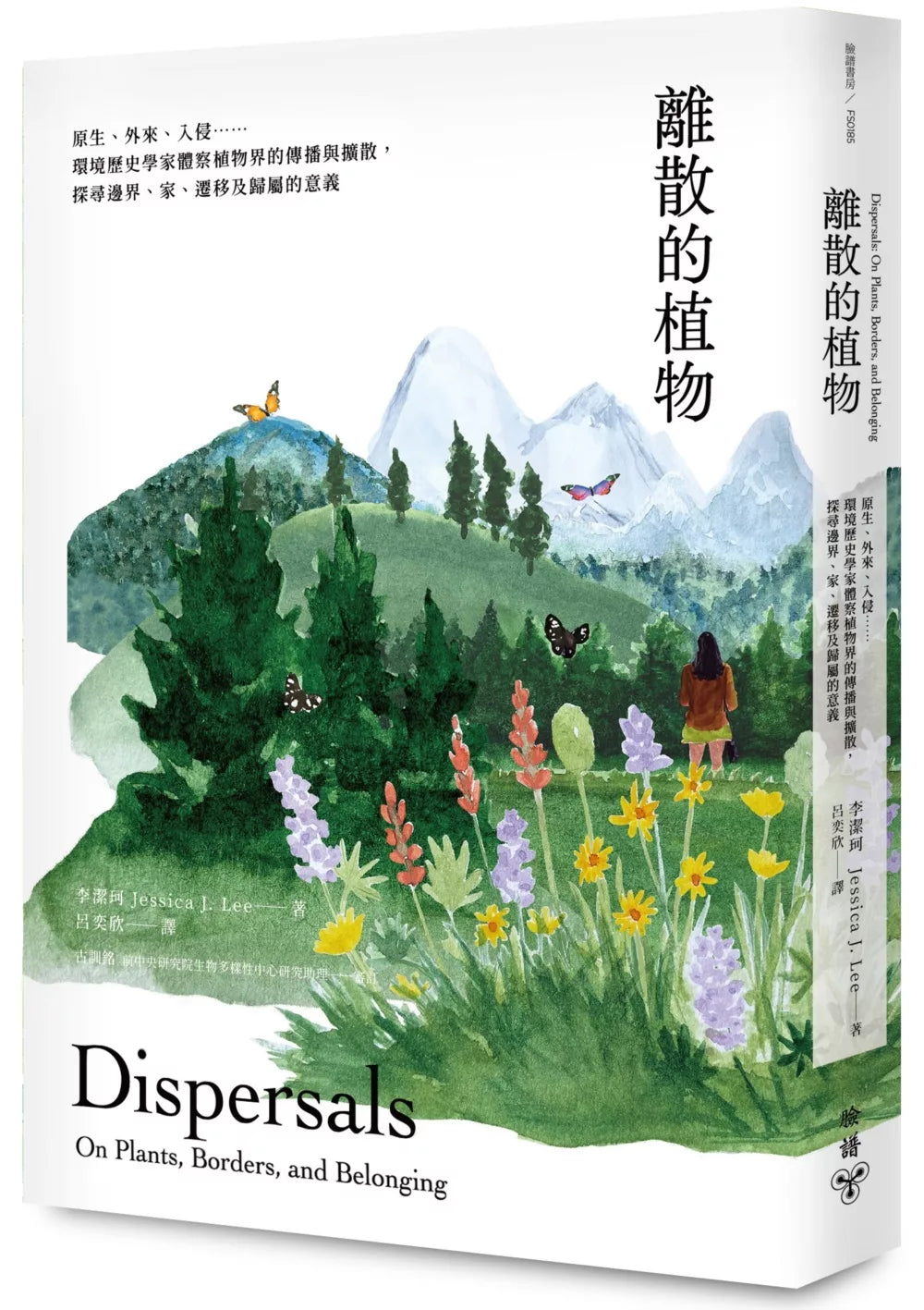1
/
of
1
Dispersed Plants: Native, Alien, Invasive… Environmental historians observe the spread and diffusion of the plant world, exploring the meanings of boundaries, home, migration, and belonging.
Dispersed Plants: Native, Alien, Invasive… Environmental historians observe the spread and diffusion of the plant world, exploring the meanings of boundaries, home, migration, and belonging.
Li Jieke Lu Yixin 译
Regular price
$24.99 USD
Regular price
Sale price
$24.99 USD
Unit price
/
per
Low stock
Couldn't load pickup availability
About Book
About Book
Dispersals: On Plants, Borders, and Belonging
⨳A new masterpiece of nature writing by the winner of the Hilary Weston Writers Trust Prize in Canada⨳⨳Following her previous book, "The Depths of Mountains and Forests," Li Jieke has written another cross-disciplinary book that combines humanistic thinking and ecological concerns⨳
⨳2024 Wainwright Prize for Nature Writing Shortlisted Works⨳
▌“Like the plants I paint, I tell stories as I migrate.”
A seed escapes from the garden wall...
Seaweed drifts in the ocean...
A tree planted on a shifting boundary...
The shrub was uprooted from its environment and the land...
What happens when these plants leave their native habitats and establish themselves elsewhere?
People often think of plants as static, and the term "taking root" is often used to describe not only plants but also people belonging to a particular place. However, plants can be accidentally removed from their native habitats, carried across oceans on barges; or they can be deliberately collected by foragers from far-flung lands to transform agricultural production in their home countries. Or, in a globalized world, migrants can take plants with them, carrying small pieces of their native lands with them.
With a Canadian background of mixed Taiwanese and British descent, author Jie Ke Li is particularly sensitive to concepts such as "migration," "drifting," "native," and "introduced." While writing "Scattered Plants," she was forced to move between two countries, three cities, and four different homes. This personal experience, combined with her previous formal training in environmental history and landscape aesthetics, has instilled in her a keen eye for the reflections of the human world on the natural environment, and a habit of reflecting on the interplay between human-constructed societies and the wild. In this book, she explores the history of tea's "migration," brought by imperial explorers to another continent for commercial cultivation. She also explores why soybeans, a common staple on East Asian tables, have remained relegated to a secondary position in cultural imagery and everyday diets after their introduction to North America. Furthermore, invasive algae in ponds, mosses spreading as far as the Arctic Circle, and weeds everyone desperately wants to eradicate—all these prompt the author to ask: What happens when these plants leave their native habitats and establish themselves elsewhere?
This book, a fusion of memoir, history, and natural science, explores the intertwined worlds of plants and humans, while the author discovers parallels and contrasts in the migrations of plants and humans. The fourteen essays examine plants that, to some degree, are considered "out of place," allowing readers to explore new perspectives on the true meanings of "home," "belonging," and "inclusion."
▌Good reviews and praise: After finishing this book, readers will find Li Jieke's voice lingering in their minds for a long time.
——Library Journal star-rated review
The author weaves personal history with a subtle optimism. Like plants that leave their homes and replant in new environments, we adapt to transition, migration, and memory. This book is a profound meditation on nature and identity in a constantly changing world.
—Kirkus Review
Li Jieke lucidly describes her encounters with various plant species and raises reflective questions about plants and her own sense of belonging. Readers of this memoir with an interest in plants and the environment will particularly find the parallels drawn between plants and human society in matters of life, such as transitions and changes, to be thought-provoking.
——Booklist
She is one of the most interesting and celebrated writers writing today about nature, identity, and place... Jieke Li’s work deftly weaves personal memoir and family history with botany, cultural critique, and firsthand observation of the natural world.
The Berliner
Evoking centuries-long histories of border crossings between humans and plants, Li Jie Ke interrogates the true meanings of belonging, love, and conservation, and what our shared future will look like on a planet plagued by intercontinental migrations.
──Literary Hub website
Li Jieke's lyrical prose grows from a fertile soil of thorough research and intimately personal memories. These memories are sometimes vivid and vivid, sometimes shrouded in a gentle mist with the passage of time... From seaweed to soybeans to citrus... her writing seamlessly connects the various subjects. Li Jieke makes you stop and smell the weeds.
──《The Cut》
Publication Date
Publication Date
2024-09-12
Publisher
Publisher
臉譜
Imprint
Imprint
Pages
Pages
324
ISBN
ISBN
9786263155381
share

